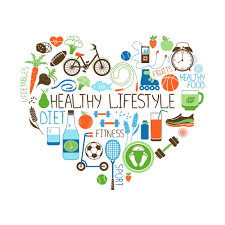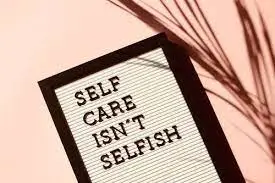Maintaining a healthy lifestyle entails a lot more than having an apple and taking eight glasses of water a day, healthy living warrants a balanced lifestyle.
This includes, prioritizing your physical as well as mental, emotional and social well being. Here are the benefits of maintaining a healthy lifestyle.

Benefits of Maintaining A Healthy Lifestyle
Sustaining an all right way of life comes with the following conveniences:
- Reduced health costs
- Good quality life
- Energy and spirit to go after your interests
- Enhanced confidence and self-esteem levels
- Personal growth
- Timeless aging
The following are main tips on maintaining a healthy lifestyle
- Sleep
Sleep is one of the most underrated practices in our day to day activities. It is shocking however, how sleep seriously affects our health and life in general. Having the recommended 8 – 10 hours of sleep a day helps foster physical growth and development and reduces risks of one getting chronic health problems.
Sleep is good for the heart and the circulatory system. This is evidently true as it helps reduce chances of one getting heart attacks. When we sleep, our blood pressure and heart rate fall. However, they gradually begin to increase as we wake up. A sharp increase in our blood pressure and heart rate can lead to heart attacks and angina (pressure, tightness or heaviness in the chest)

The second benefit of enough sleep is its hormonal regulatory effects. Cortisol, a hormone released by our bodies in the morning, is responsible for promoting alertness. To promote physical growth and development, children and teenagers release testosterone, estrogen and progesterone hormones in their sleep.
In enhancing metabolism rate, one’s sleeping pattern also has to align with their circadian clock. A circadian clock refers to the physical, mental and behavioral changes that follow a 24-hour cycle. Having undefined sleeping patterns interferes with several metabolism activities. These activities include; digestion of fats, ability to respond to insulin and levels of hormones that control hunger. This in turn leads to obesity, diabetes and unhealthy eating habits.
Another area affected by sleep is the respiratory and immune system. When we sleep, our breathing pattern changes as well. We take in slow and less deep breathes. As a result, we take in less oxygen while asleep. In brief, a change in this could be detrimental to people who have asthma and COPD. Read more on asthma and chronic obstructive pulmonary disease (COPD)
Wrapping it up on sleep, is how sleep supports brain function. Deprivation of sleep interferes with how we carry out normal daily activities. Activities such as learning, focusing, driving, maintaining physical and emotional balance. Sleep deficiency tends to leave one feeling anxious, cranky, fatigued, frustrated and worried throughout the day.
2. Exercise

Engaging oneself in physical activities such as; walking, jogging, cycling, working out, etc. does more than keeping us physically fit. Improved sleep quality, reduced anxiety levels and reduced blood pressure are among other benefits of physical exercise. To add on that, physical exercise also promotes brain health. This is made possible through the release of endorphins. Endorphins are hormones that limit risks of dementia and depression. On lowering risks, it also lowers risks of eight cancers in the body. The cancers are; Bladder, Breast, Colon, Endometrium, Stomach, Kidney, Lung and Esophagus Cancer. Physical exercise has as well been proven to promote; heart health, healthy weight gain, strengthening of bones, body balance and co-ordination.
3. Eat
There is a saying that goes, “You are what you eat.” Here is why. Interestingly, the food we eat affects our mood. Consequently, our mood affects our food choices. Food for thought! Hence, the importance of having a balanced diet. It is scientifically proven that, two out of every three people that incorporate fresh fruits and vegetables in their meals report no mental issues. Using food as a means to nourish our bodies and not just fill our bellies helps us manage a healthy weight and maintain our immune system. Our immunity is our defense against illnesses. Improper nutrition causes immunodeficiency.
Read Also: Most Hyped New Eat Out Spots in Nairobi

What we eat also has benefits to our skin. For instance, tomatoes are known to have Vitamin C which is effective in slowing down premature aging. On the other hand, berries boast of having antioxidants. Antioxidants promote cell generation for a new skin. Our bodies also need water as much as food since water is necessary for transportation of nutrients. Insufficient intake of liquids causes dehydration which consequently leads to lack of energy.
Unquestionably, our bodies derive energy from the foods and liquids we consume. Another reason why having a balanced diet is important. Diets low in carbohydrates increase tension and anxiety. On the contrary, diets rich in carbohydrates have an uplifting mood. Striking a meal that is rich in proteins, average in carbohydrates and low in fats, produces a healthy balance of Iron and Omega-3 fatty acids into the body. Iron supplies the body with energy while Omega-3 fatty acids benefit the brain and the skin wonderfully.
4. Manage Your Stress Levels
Stress is a physical, mental and emotional strain that brings about some difficulty in our lives. Managing stress helps in releasing pressure and also builds on our resilience to face challenges. In addition, an interesting fact about stress is that not all kinds of stress are bad.
Sometimes, going through stress and managing it effectively can help us; have an improved outlook in life, improve our mental health, move on from tough situations, better our social relationships with others and enhance our daily performance at work.
Sadly, increased stress levels can suppress the circulation of gonadotropins, leading to a disruption of the normal menstrual cycle. This can results to prolonged effects such as total impairment of the reproductive function.
Read Also:Three habits that consume the mind
5. Take Care of Yourself

One would think that doing all of the above wholly constitutes self care, which is not entirely true. Taking care of yourself includes other effortless practices such as being kind to and with yourself. How you speak to yourself affects your physical outlook and performance. Challenge your brain everyday by keeping it active and happy. This can be achieved through generating ideas and asking yourself thought provoking questions.
You can also add a little spice to your life by including some little fun and happiness in it. Do things that bring joy and gratification to your life. Singing, going for a hike, watching birds or even listening to music and such like things have been proven to relax peoples minds and elevate their spirits.
To add on all that, other forms of self care include; seeking professional help when faced with a crisis, setting boundaries, creating time to be with yourself and unplugging from the rest of the world of technology.
As has been noted, a healthy lifestyle is a collective effort. Perennially, like every other thing we set out to do in life, it also needs discipline, commitment and consistency. All the best as you set out to live your best life.
Subscribe to Switch TV















